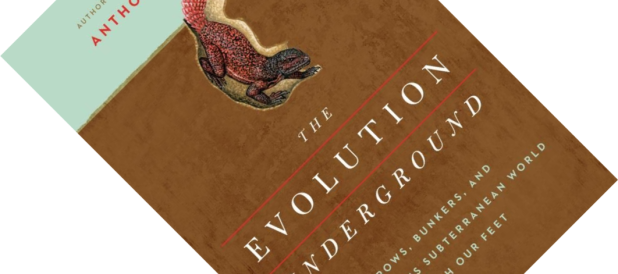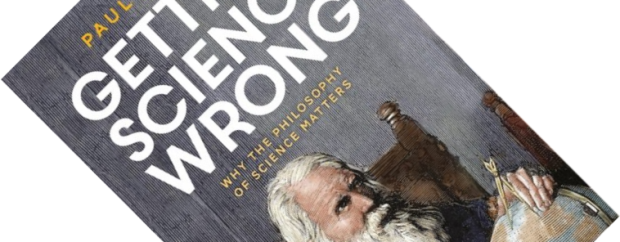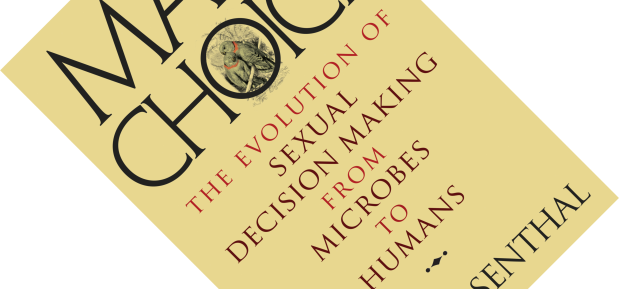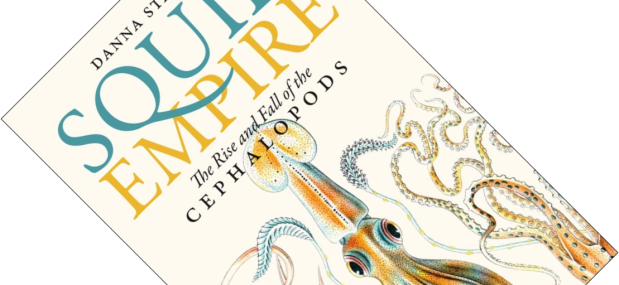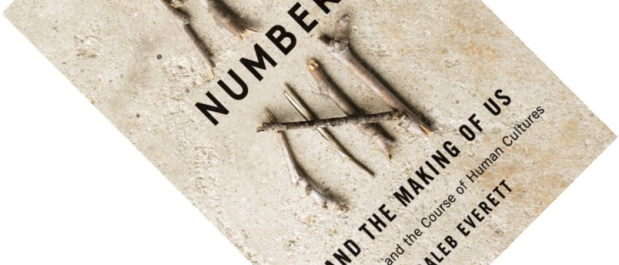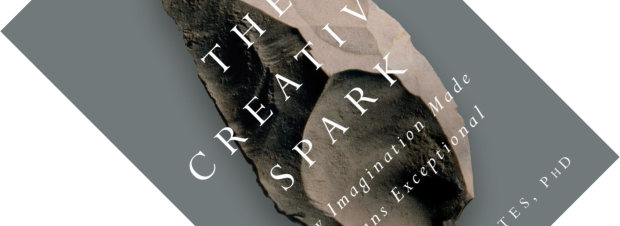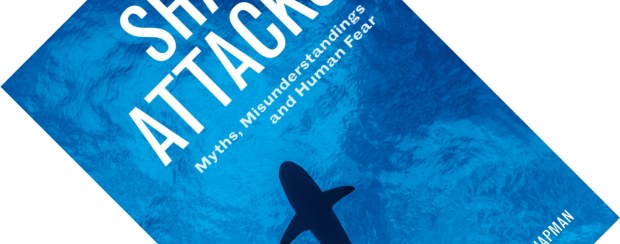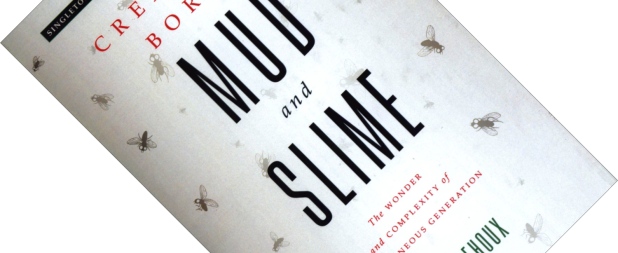Today, a fantastic piece was shared on Facebook by various friends that I found myself furiously agreeing with, nodding all the way through. Written by freelance journalist Alden Wicker, it was already published in November 2017 on Craftsmanship Quarterly, but only now made its way into my circles. Her piece, provocatively titled “Eco-fashion’s Animal Rights Delusion“, perfectly summarises why I always feel a certain unease and skepticism towards veganism, the organic agriculture movement etc., and can’t wholeheartedly support organisations like PETA or Greenpeace.
(more…)
Author: inquisitivebiologist
Book review – The Evolution Underground: Burrows, Bunkers, and the Marvelous Subterranean World Beneath Our Feet
An underground lair… what child didn’t daydream about it? As a child, I spent several summer holidays with friends constructing one. Granted, we didn’t really burrow, we dug a pit and put a roof back over it. Even so, if I am to believe Anthony J. Martin, I am but one in a long line of burrowing animals. With The Evolution Underground, Martin paints a surprising picture of the underrated role that burrowing has played throughout evolutionary history.
Book review – Getting Science Wrong: Why the Philosophy of Science Matters
So you think you know what science is? I thought I did. I mean, we notice patterns, formulate hypotheses, gather observations to see if our ideas are supported or not, and discard or accept our hypotheses. And this is what we do. Yet, as philosopher Paul Dicken shows in this lightly written introduction to the philosophy of science, there is no good definition of the scientific method, though there are plenty of misconceptions.
Book review – Mate Choice: The Evolution of Sexual Decision Making from Microbes to Humans
I have to preface this review by pointing out that I did not read this book from a fully neutral position. Gil Rosenthal, a professor in biology, ecology and evolutionary biology at Texas A&M University, does mate choice research on fish. So did I. Though he works on live-bearing swordtails and I worked on threespine sticklebacks, some of the work he discusses has been written by people I knew personally as supervisor, co-workers or colleagues. Many more publications referenced are ones I also read during the course of my PhD research. You could say that mate choice research is a field I am, errr, intimately familiar with. At least where fish are concerned. At the same time, I left academia after graduating in 2010, so this book seemed like a good opportunity to get back in touch with this research field.
Anyway. Sex.
Book review – Squid Empire: The Rise and Fall of the Cephalopods
Cephalopods, the group of molluscs that include the octopus, squid, cuttlefish and nautilus, are some of the most fascinating invertebrates to live in the world’s seas. Especially the octopus is famed for its intelligence and mind-bending acrobatics, being able to squeeze through the smallest hole. There have been some fantastic popular books on cephalopods recently, from William’s entertaining Kraken: The Curious, Exciting, and Slightly Disturbing Science of Squid to several works focusing on the octopus (Godfrey-Smith’s Other Minds: The Octopus and the Evolution of Intelligent Life, Montgomery’s touching The Soul of an Octopus: A Surprising Exploration of One of the World’s Most Intriguing Creatures, which made me tear up in more than one place, Mather et al.‘s Octopus: The Ocean’s Intelligent Invertebrate, and Harmon Courage’s Octopus! The Most Mysterious Creature in the Sea). But, as marine biologist Danna Staaf remarks, what’s been missing is a popular book on the evolution of cephalopods. Having been fascinated with them since childhood, she eventually decided to write Squid Empire. All hail the squid!
Book review – Numbers and the Making of Us: Counting and the Course of Human Cultures
What makes us human? Various authors have dished out various reasons in recently published books. From culture to cooking to creativity (see Fuentes’s The Creative Spark I reviewed previously). Caleb Everett, a professor of linguistic anthropology, here makes the point that the invention of numbers, which could be considered another instance of human creativity at work, has been an instrumental tool in allowing humans to transform the world. Without them, quantities exist, but we have only a vague awareness of them.
Book review – The Creative Spark: How Imagination Made Humans Exceptional
With his new book, The Creative Spark, Agustín Fuentes, a primatologist and anthropologist currently at the University of Notre Dame in Indiana, boldly puts forth the idea that what makes humans special is creativity. The ability of humans to switch back and forth between considering what is, and dreaming of what might be, and to then put these thoughts into actions (often collaboratively), has brought us a very long way from our primate origins to the tool-wielding, world-shaping force of nature of today. Along the way, Fuentes wants to do away with some of the dominant narratives regarding human evolution today, or rather, he thinks most of them oversimplify things and lead to distortions in our thinking. Instead, he presents a new synthesis that places creativity front and centre stage as being the most important mechanism that helped us overcome challenges.
Book review – Dinosaur Art II: The Cutting Edge of Paleoart
In 2012, Titan Books published Dinosaur Art: The World’s Greatest Paleoart, showcasing the artwork of 10 famous palaeoartists. That book is still on my wishlist. Five years later they have followed this up with Dinosaur Art II. The title may not be terribly imaginative, but, by Jove, the artwork is! The child in me got all giddy at the chance to review this book.
Book review – Shark Attacks: Myths, Misunderstandings and Human Fear
If there is one group of animals that Steven Spielberg has not done a favour, it must be sharks. Already feared as a dangerous predator in an environment where humans are not in their element the 1975 movie Jaws drove this fear to stratospheric heights and painted a portrait of these fish as ruthless man-eating monsters. Browse any selection of books on sharks, and you’re likely to see photos of a breaching great white, jaws agape. Many people are not happy with this Jaws effect (see for example Lindsay Abrams’s post on Salon or Marc Lapadula’s piece on Screenprism), and this lingering fear even affects policymakers (see Christopher Neff’s article in the Australian Journal of Political Science). Tobey Curtis provides an interesting counter note to this sentiment on The Fisheries Blog, also pointing out how – ironically – Peter Benchley, author of the book on which Spielberg based his movie, was actually an advocate for shark conservation (see his book Shark Trouble). As a side-note, shark attacks have happened for as long as human have entered the sea, though have long been poorly documented – Richard Fernicola’s Twelve Days of Terror: Inside the Shocking 1916 New Jersey Shark Attacks is a bit of an exception.
This, by way of a short introduction, brings us to the current book: Chapman’s Shark Attacks. The problem with shark attacks is that they are a bit like plane crashes: low-probability, high-impact events. You’re not likely to experience either, but when you do, the results can be disastrous. And thus we fear both flying and sharks.
Book review – Creatures Born of Mud and Slime: The Wonder and Complexity of Spontaneous Generation
Spontaneous generation, the idea that life can arise out of non-living matter, is both alive and dead today. Current science accepts the idea that at some point in the distant past, complex self-replicating molecules arose, which formed the starting point of billions of years of unicellular life. But there is an obsolete side to this theory. For millennia, philosophers and scientists believed that all sorts of creatures could arise spontaneously from the mud and slime this book refers to. In the late 1850s, The French microbiologist Louis Pasteur performed experiments that definitively put the nail in the coffin for this idea.
Quite a few books have been written about the later discussions around this theory and its eventual demise (contemporary examples are John Farley’s The Spontaneous Generation Controversy from Descartes to Oparin or James Strick’s Sparks of Life: Darwinism and the Victorian Debates over Spontaneous Generation). Based on a three-part lecture series, this purposefully short book, which is not intended as a complete history, gives a whistle-stop tour of spontaneous generation from Antiquity to 1769. Are you ready?

